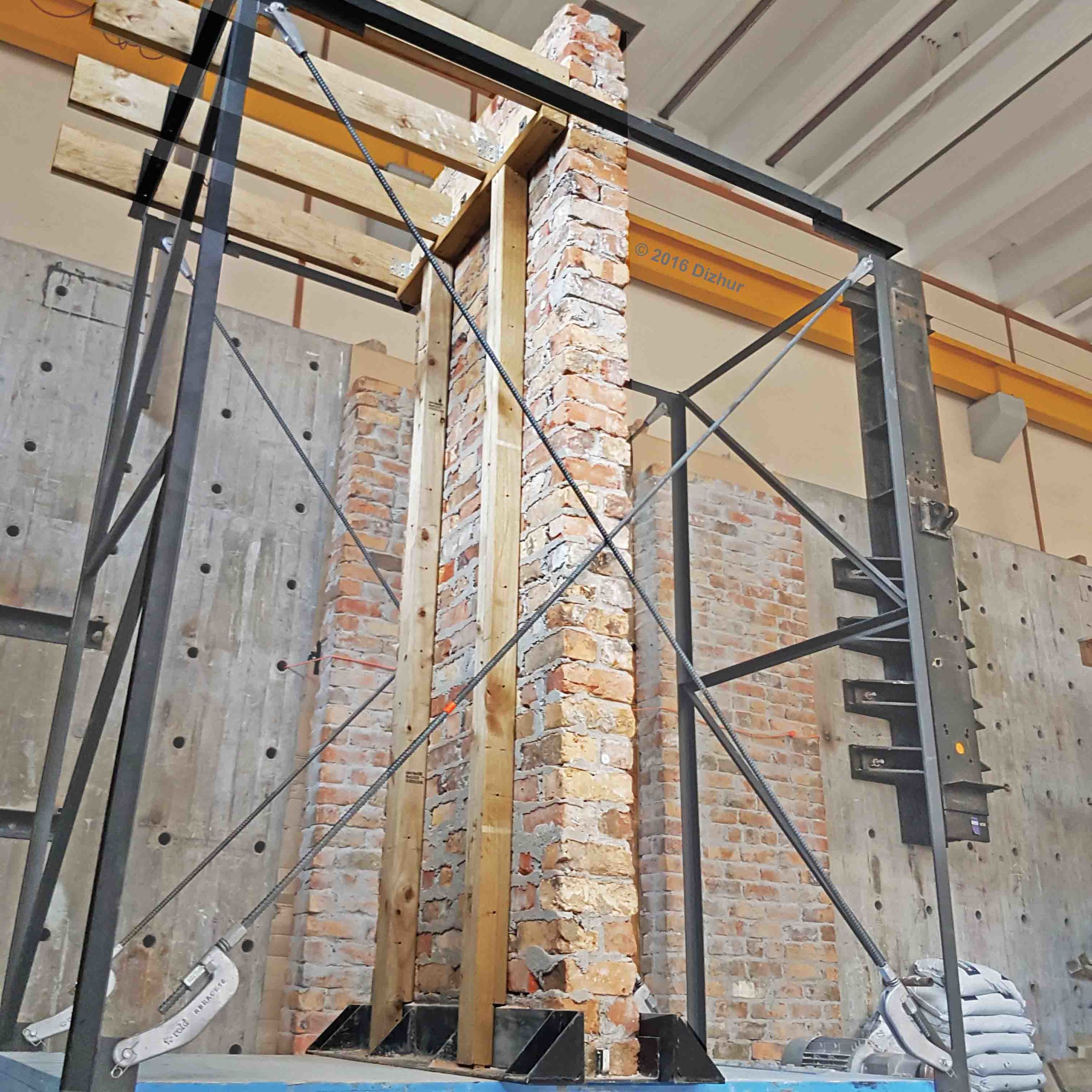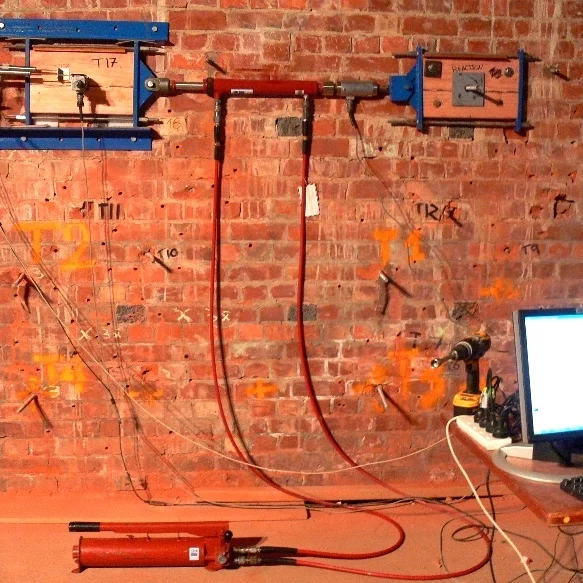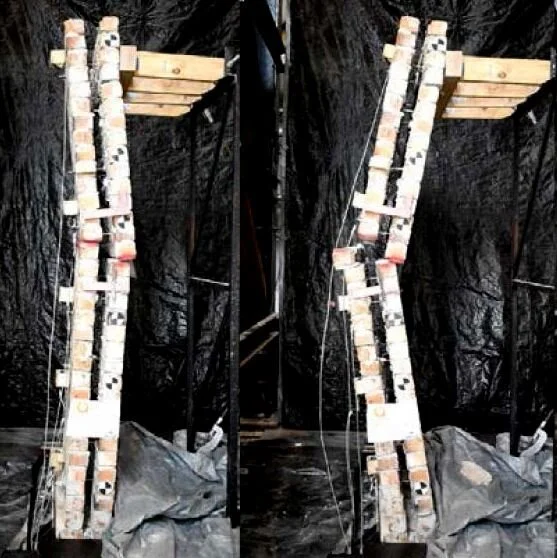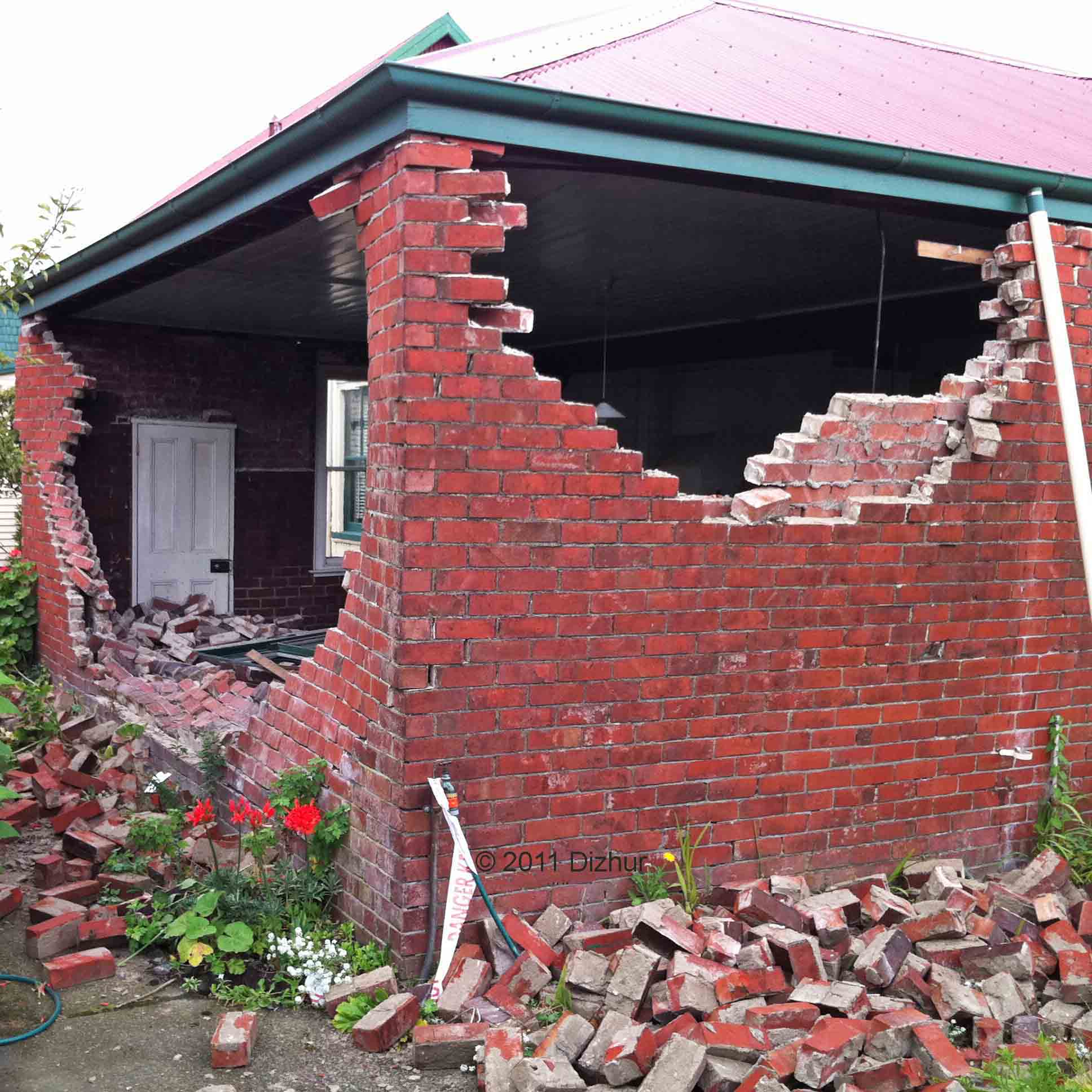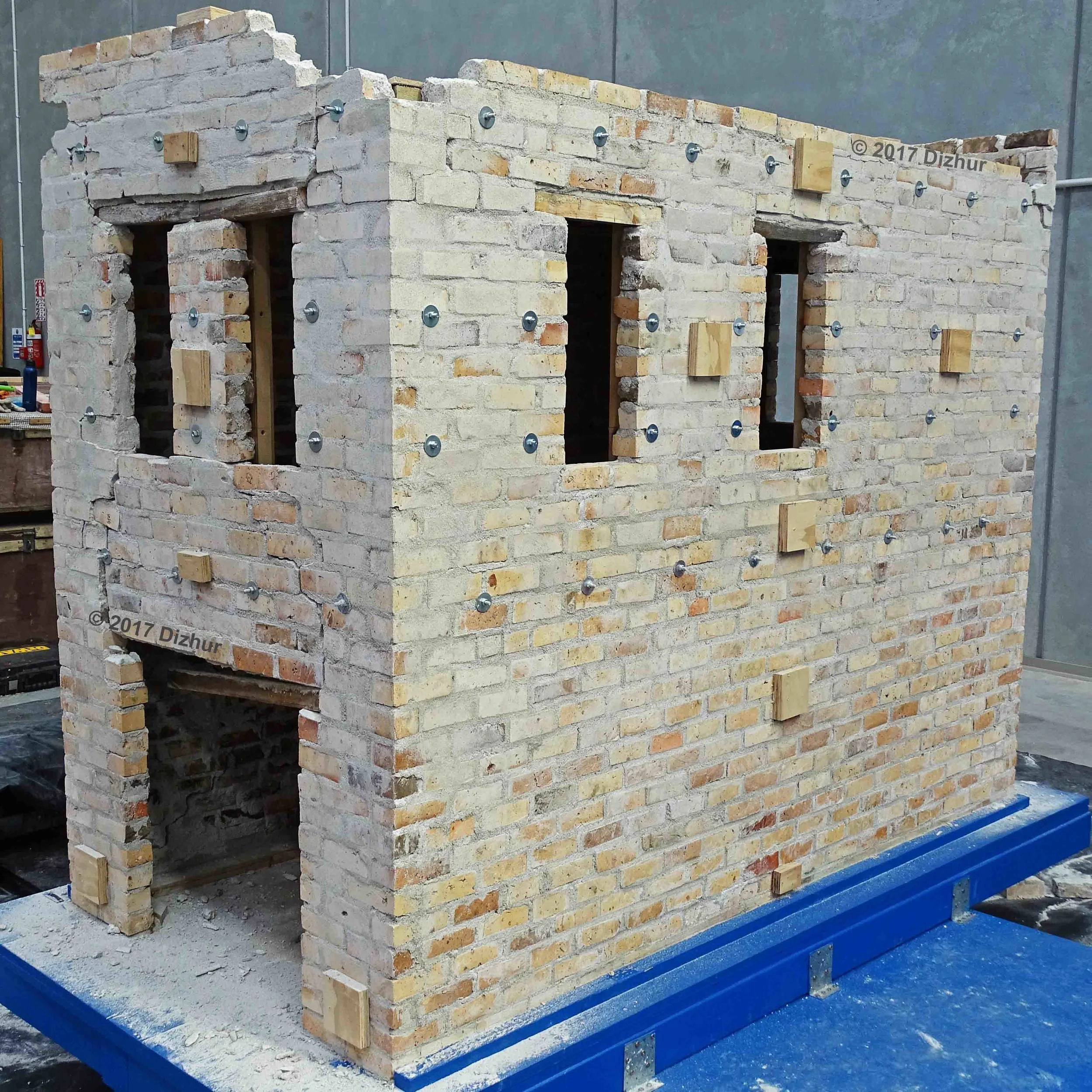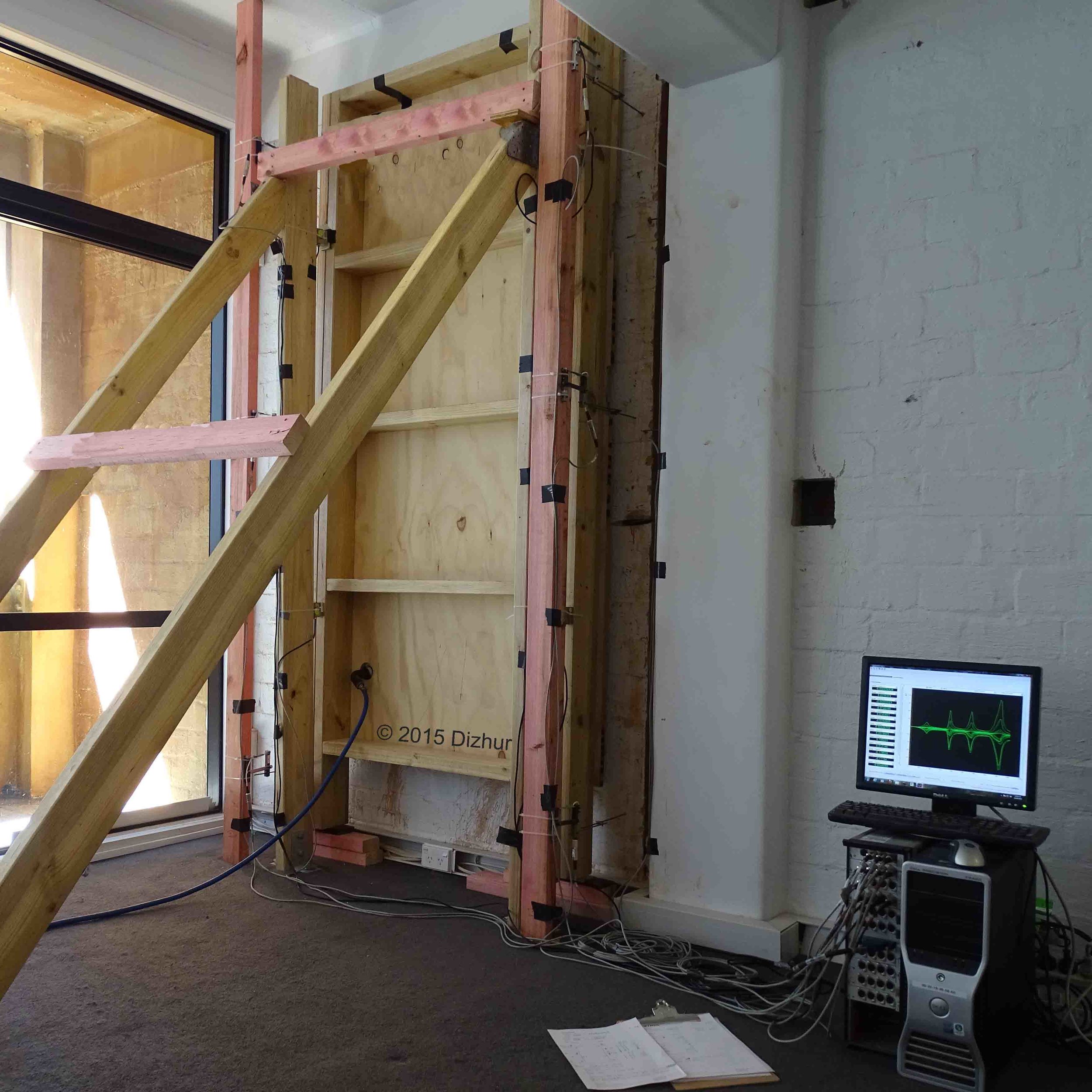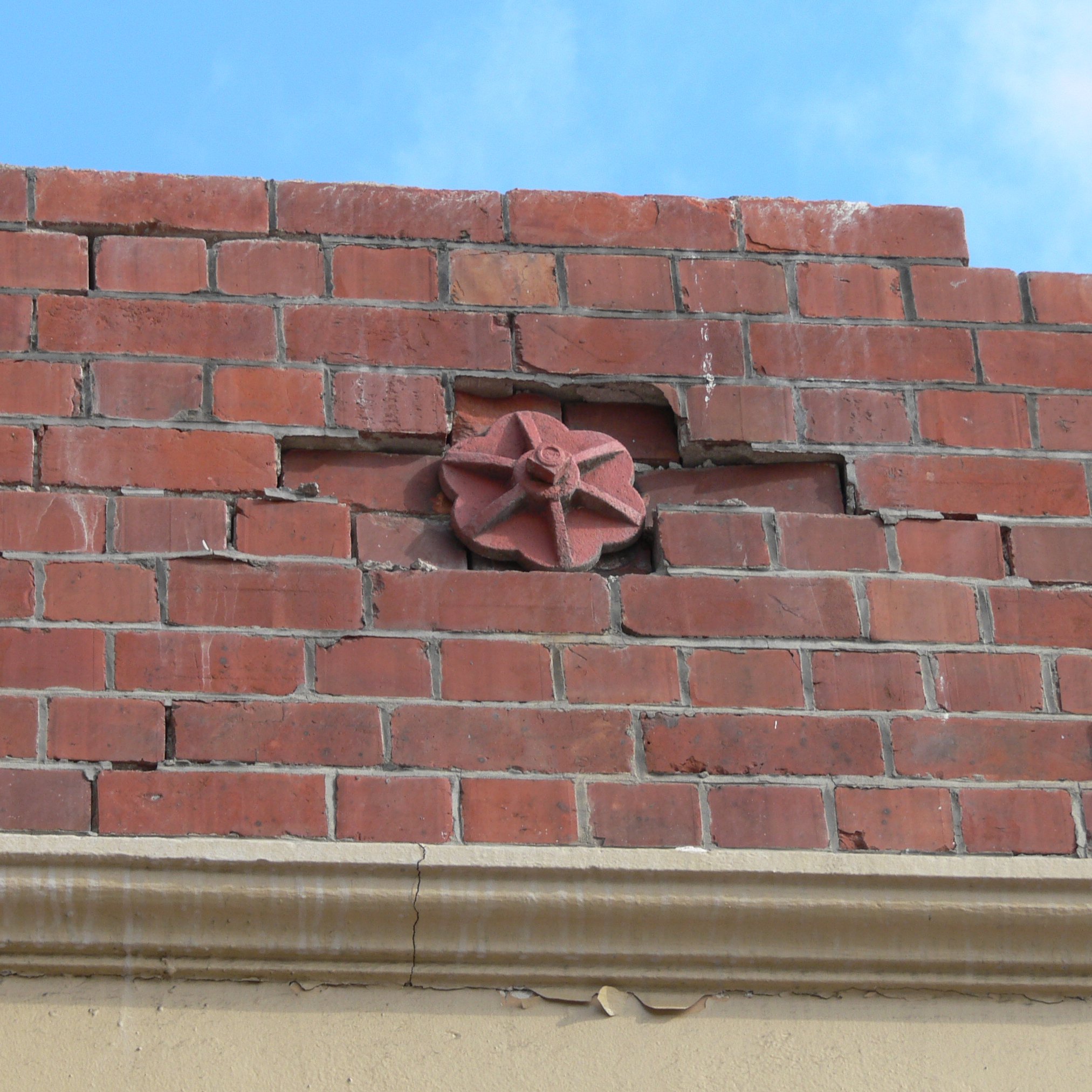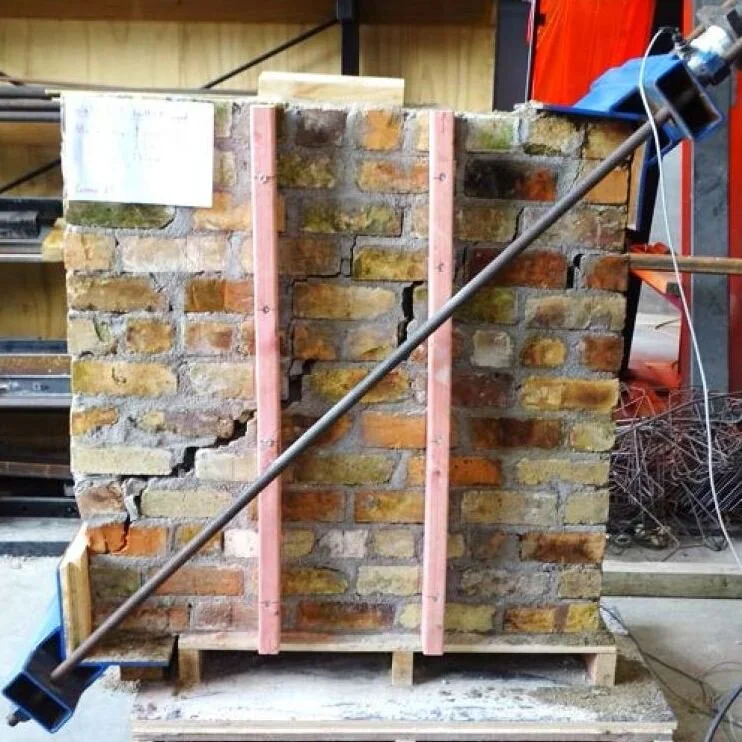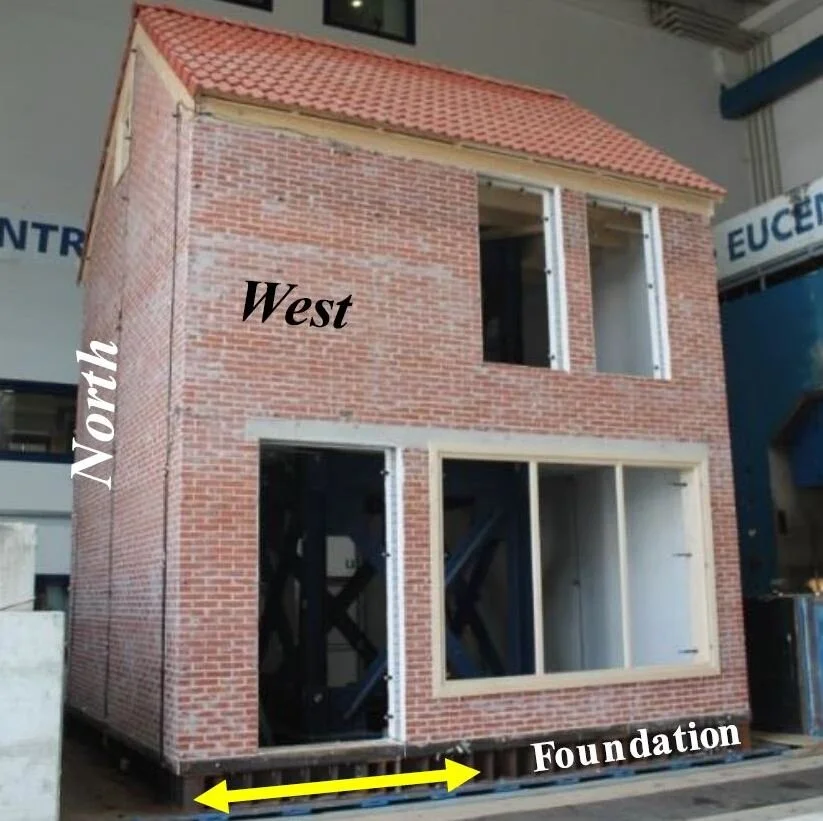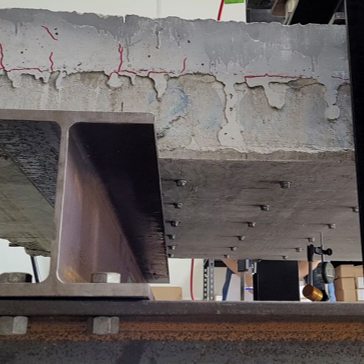Supporting research
This is a selection of related and publicly available research on earthquake performance and retrofit techniques for masonry buildings. The research was undertaken and published by various educational institutions.
SECURING SOLUTIONS FOR FACE-LOADED CLAY BRICK URM WALLS
13th Canadian Masonry Symposium (2017) - Halifax, Canada
Shake-table testing of 3 full-scale double-leaf solid clay brick masonry walls retrofitted with timber strong-backs and mechanical fasteners or post-tensioning.
9th International Masonry Conference (2014) - Guimarães, Portugal
22 on-site cyclic shear tests to study the effectiveness of adhesive anchors in transfering seismic shear from floor to walls. Studied parameters included: anchor rod diameter, embedment depth, timber blocking thickness, boundary conditions, washer size and axial pre-load of the anchor.
SEISMIC RETROFIT OF MASONRY WALLS USING TIMBER STRONG-BACKS
Structural Engineering Society Journal (2017), 30(2), 30–44
Development and validation of the timber strong-back solution as a simple and cost-effective seismic retrofit for masonry solid- and cavity-walls that consider the impact on the building tenants and aesthetics. Includes design tips.
Structural Engineering Society Journal (2017), 30(1), 57-81
19 air-bag tests performed on 6 buildings to investigate out-of-plane masonry wall capacity. Different wall configurations included a variety of geometries, boundary conditions, pre-test damage states, material properties, and retrofit techniques.
ON-SITE TESTING OF MASONRY SHEAR WALLS STRENGTHENED WITH TIMBER PANELS
Proceedings of the Institution of Civil Engineers – Structures and Buildings (2020)
The use of timber-based panels connected to the masonry walls via mechanical fasteners was investigated to strengthen or repair unreinforced masonry (URM). Testing consisted in in-plane semi-cyclic quasi-static loading applied to as-built, repaired and retrofitted configurations.
RETROFITTED URM CAVITY WALLS EXPERIMENTALLY VALIDATED AND A SEMPLIFIED OUT-OF-PLANE ASSESSMENT
Structural Engineering Society Journal (2020), 33(2)
Use of shear-transferring cavity ties to improve the out-of-plane capacity of cavity walls and achieve a composite behaviour. The cavity walls were tested using both shake-table and air-bags tests.
EXPERIMENTAL EARTHQUAKE RESPONSE OF TWO-STOREY SCALED URM BUILDINGS
11th International Conference on Structural Analysis of Historical Constructions (2018) - Cusco, Peru
Realistic earthquake simulation response of a retrofitted two-storey brick masonry building. Retrofit: moment-resisting frames at the ground floor, and timber strong-backs with shear walls and wall-to-floor7roof anchors at the top floor.
OUT-OF-PLANE PROOF TESTING OF MASONRY INFILL WALLS
Structures (2018), 15, 244-258
Two-way out-of plane flexure, boundary restraints and presumed ‘arching’ action from the building frame substantially improved the out-of-plane capacity of infill walls compared to one-way vertical out-of-plane flexure. The effect of simulated in-plane pre-damage on the out-of-plane capacity was also investigated.
TESTING OF URM WALL-TO-DIAPHRAGM THROUGH-BOLT PLATE ANCHOR CONNECTION
Earthquake Spectra (2021), 37(1), 304-323
6 existing vintage plate anchor connections were tested in an historic URM building, and 12 newly installed plate anchors were tested in two additional URM buildings. Test results are provided together with equations for the prediction of plate anchor capacity.
URM CAVITY WALLS: SIMPLE AND EXPERIMENTALLY PROOF-TESTED RETROFIT
Australian Earthquake Engineering Conference (2019) - Newcastle, NSW
Use of semi-cyclic air-bag testing to establish the capability of single-single cavity-walls and double-single cavity-walls to achieve composite behaviour when retrofitted with cavity ties that transfer shear.
IN-PLANE TESTING OF URM WALL PANELS RETROFITTED USING TIMBER STRONG-BACKS
Australian Earthquake Engineering Conference (2019) - Newcastle, NSW
Investigating the in-plane capacity of timber strong-backs and of plywood overlay earthquake retrofit solutions. Use of timber strong-backs and ratchet tie-down straps as temporary securing solutions.
TWO‑WAY BENDING OUT‑OF‑PLANE COLLAPSE OF A FULL‑SCALE URM BUILDING TESTED ON A SHAKE TABLE
Bulletin of Earthquake Engineering (2019), 17, 2165–2198
Shake table test on a one-storey full-scale unreinforced masonry built of cavity walls and with pitched timber roof supported by two gable walls, up to partial collapse.
SHAKING TABLE TESTING OF AS-BUILT AND RETROFITTED CLAY BRICK URM CAVITY-WALLS
Engineering Structures (2016), 125, 70–79
Investigating the performance of 5 full-scale brick cavity-wall retrofitted with mechanical screw-ties or with timber strong-backs. Spacing of the mechanical screw-ties was one of the variabilities explored.
PULL-OUT BEHAVIOR OF ADHESIVE CONNECTIONS IN URM WALLS
Earthquake Spectra (2016), 32(4)
400 adhesive anchors tested in 11 masonry buildings to identify the influence of the type of adhesive, the masonry strength, the anchor type, embedment depth and diameter, overburden level, the quality and direction of installation, and the use of metal mesh sleeves.
SHAKE TABLE TESTING OF SEISMICALLY RESTRAINED CLAY BRICK MASONRY PARAPETS
Earthquake Spectra (2018), 34(1), 99–119
Shake table testing of 9 brick masonry parapets retrofitted with common bracing systems and alternative securing techniques such as post-tensioning and with the combined use of braces and strong-backs.
OUT-OF-PLANE SHAKING TABLE TESTS ON URM SINGLE LEAF AND CAVITY WALLS
Engineering Structures (2016), 125, 455-470
Shake table tests of clay brick and calcium silicate brick cavity-walls to study the effect on boundary conditions and configuration of the original flexible ties in their out-of-plane failure. Three cavity wall panels and one single leaf wall were tested.
OUT-OF-PLANE STRENGTH OF EXISTING TWO-WAY SPANNING SOLID AND CAVITY UNREINFORCED MASONRY WALLS
Structures (2018), 13, 88-101
In-situ air-bag tests of 8 single-leaf and double-leaf cavity walls to investigate the effects of the boundary conditions in the out-of-plane capacity. Test were taken in two 1960s dwellings in Adelaide, South Australia.
MECHANICAL ANCHOR SUPPLEMENTARY SHEAR REINFORCING AS A RETROFIT TECHNIQUE FOR HOLLOWCORE FLOORS
New Zealand Society for Earthquake Engineering Conference (2022)
Two full scale, three point bending shear tests and FEA analysis was conducted to assess the impact on hollowcore floor unit (aka dycore) shear performance of post-installed PYTHON HC supplementary shear reinforcement.

